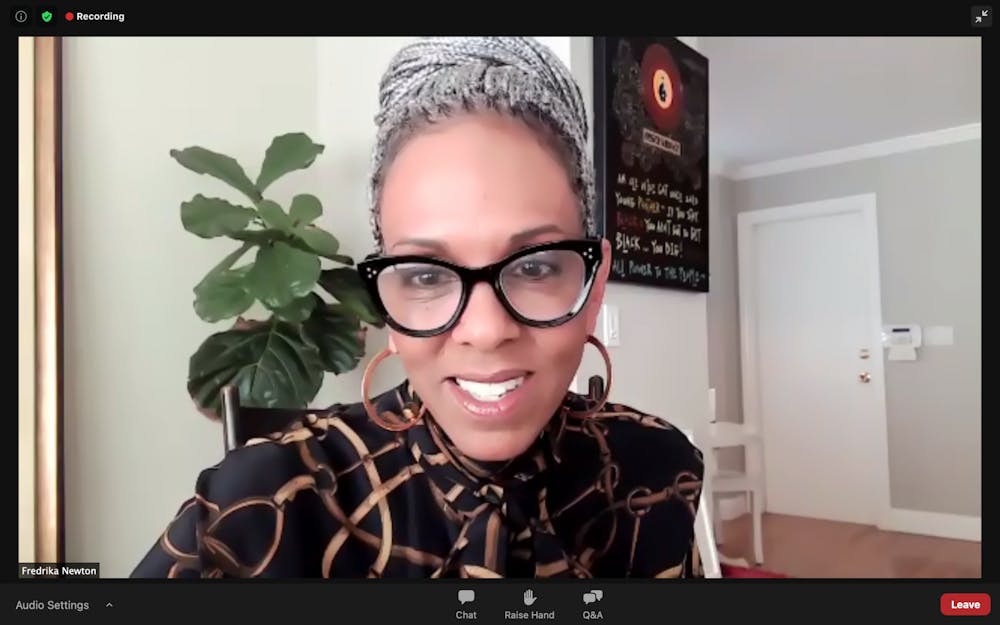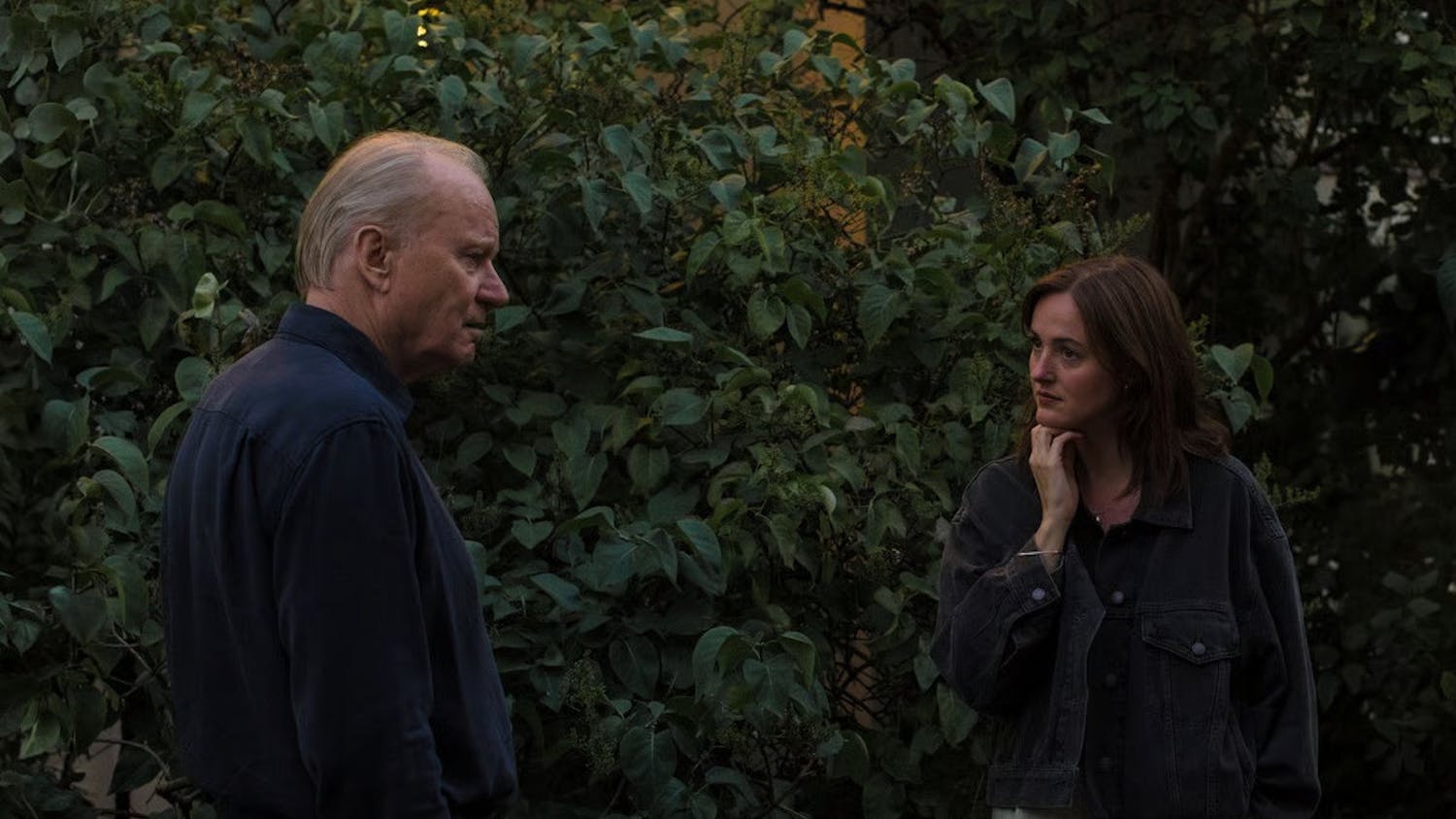Kennedy Political Union and Women’s Initiative invited former Black Panther Party member Fredrika Newton to speak about her experiences participating in the Black liberation movement of the 1960s on Monday.
Newton is a retired nurse but was raised by activist parents in Oakland, California at a time of mass violence and racial turmoil.
“It was super racist where we were living,” Newton said. “There were still Klan meetings on Tuesday nights in town, so we were afraid to even go off campus,” referring to her time at the University of Oregon. “There were only 35 Black students on campus at that time. My grades [had] plummeted.”
Newton was married to Black Panther Party of Self Defense founder Huey Newton until he was murdered in August 1989.
Huey and Bobby Seale established BPP in 1966 to fight against police brutality and racial inequality in their home city of Oakland. Police brutality and the fight for civil rights for Black Americans had risen to a level that made Huey and Seale decide they needed to fight back in the name of justice for their community.
Newton was 19 years old when she met Huey at her mother’s house.
“My mother told me that the Black Panther members of the Black Panther Party were coming over for lunch and I was a little taken aback. I just didn't want to be there. I spent a lot of time actually avoiding the Black Panther Party,” Newton said.
Despite trying to avoid the Black Panther Party, Newton quickly got involved with Huey.
“I started seeing Huey, but I didn't join the party right away. In fact, I don't think Huey even really wanted me to join the party. It was so dangerous during that time,” she said. “We were under constant surveillance, or the party was under constant surveillance, and harassment by the FBI. They were breaking into offices, shooting up members. By that time, over 20 of our members had been killed.”
The BPP was targeted by local and state law enforcement due to their armed stance against the police as well as being surveilled by the FBI through its COINTELPRO program.
“It was hard work serving the community, body and soul. We rarely slept, we lived communally. It wasn't an easy life. There was no work life balance. It was work. In the mornings, we were up at five in the morning and fed the children and then we would go out during the day and do whatever our assignment was and you had to make sure that the place where you were living was secured,” Newton said.
Newton explained that BPP members took turns standing “watch” every day so that there was always somebody awake to look out for threats against the organization.
“But you know, I was my mother's daughter,” she said. “I was an activist, mother's activist daughter and this is how I became a member of the Black Panther Party.”
As a member of the BPP, Huey created the Ten Point Platform and Program which illustrated the goals the Party hoped to achieve. These survival programs included the Black Panther Party newspaper, a free ambulance service and a free breakfast program for students, all of which Newton heavily participated in.
When Huey was shot and killed in August 1989, Newton said she remembers feeling lost.
“It took me a long, long time to unpack that grief. But I realized that with that grief came a legacy and that it wasn't just in my heart and in my head. It was physical and in my basement,” she said. “There were photos, there were archives, there were writings, books, poetry, recordings, artwork, there was something.”
Newton realized that, while there were so many remnants of Huey’s lifelong activism, “there was so little in the public awareness about the party that was accurate or representative for a Black power movement that fed, clothed, educated, protected and cared for its Black and poor citizens.”
“This is American history,” she said. “That's an American story and this is American history that needs to be told and understood for what it was.”
Now, over thirty years after his death, Newton is still honoring her husband and the work he did. President of the Dr. Huey P. Newton Foundation, founded in 1995, her mission has been to promote the accurate history of the BPP with the archives Huey Newton left behind. Newton has worked with the Oakland City government to install a bust of Huey and name the street where he was murdered after him as a way to publicly acknowledge and commemorate the work of the BPP.
Even though she is working to commemorate the past work of the Black Panthers, Newton still sees the mark of the BPP come alive in places like the Black Lives Matter movement.
“The activism that rose up in this country in 2020 has the footprint of the Black Panther Party all over it,” Newton said. “The government focused on the activists instead of the perpetrators of these hate crimes, which also has a footprint in the Black Panther Party. And as the focus shifted toward the very unradical idea that Black lives do indeed matter.”
Correction: Newton went to the University of Oregon, not UC Berkeley.





